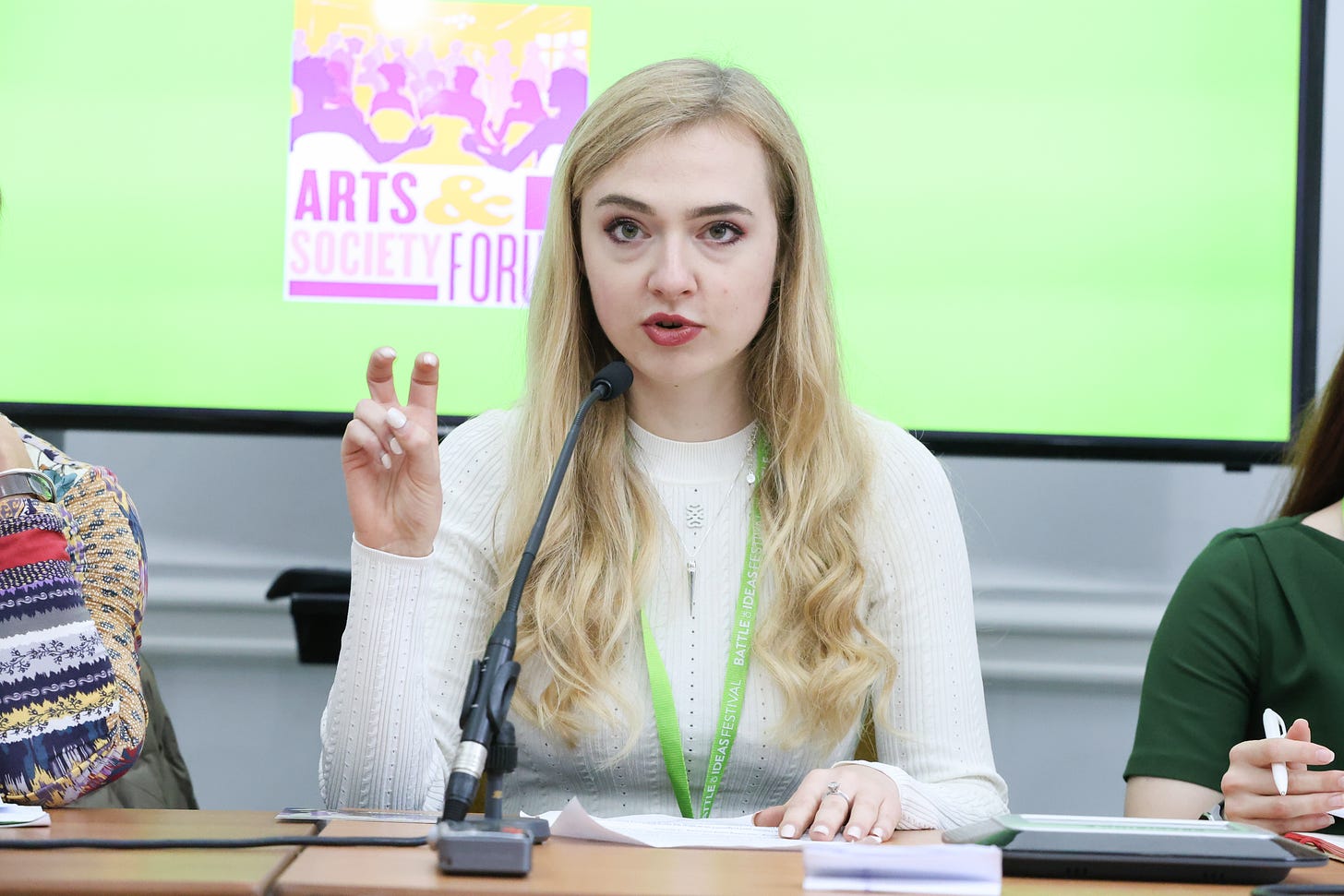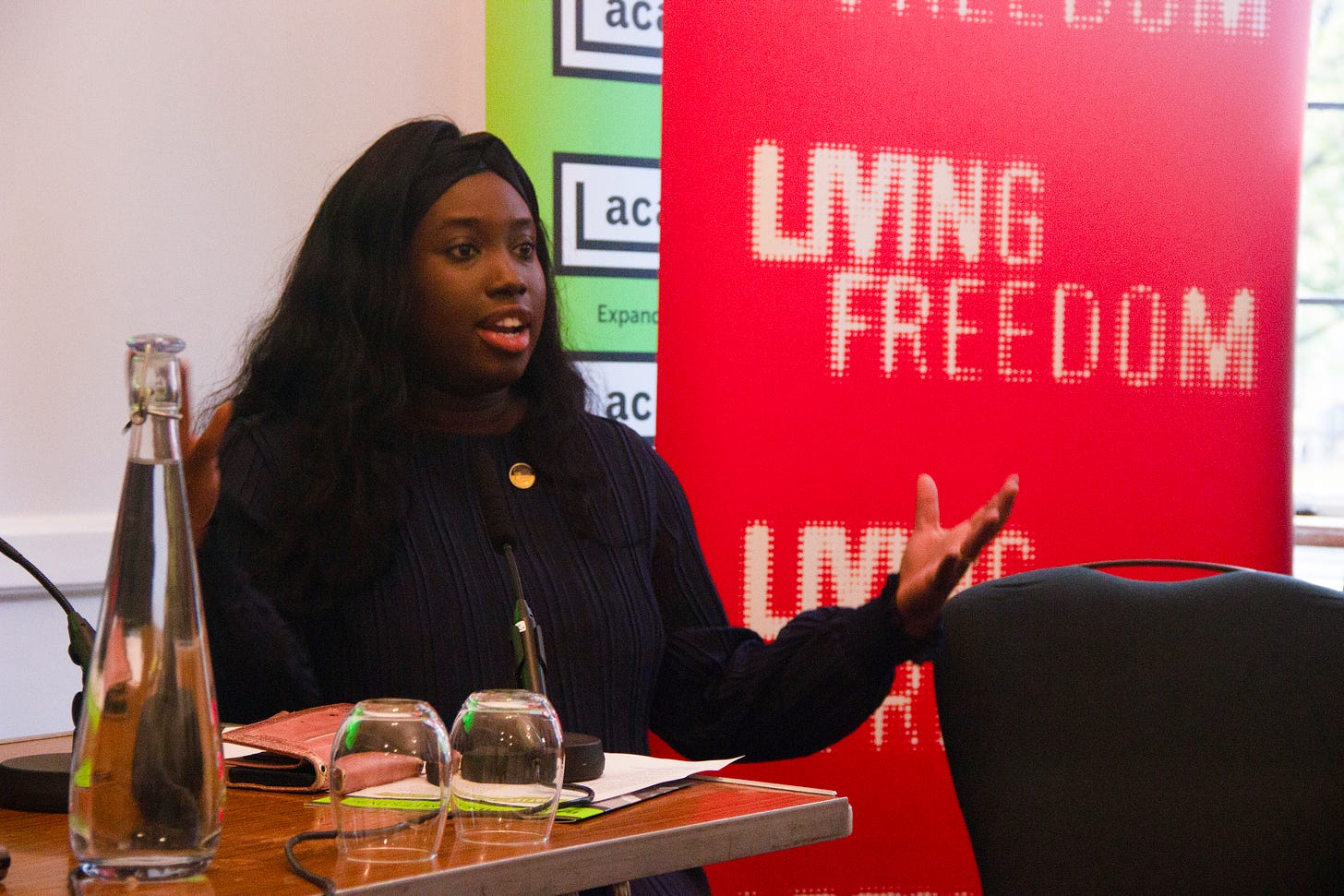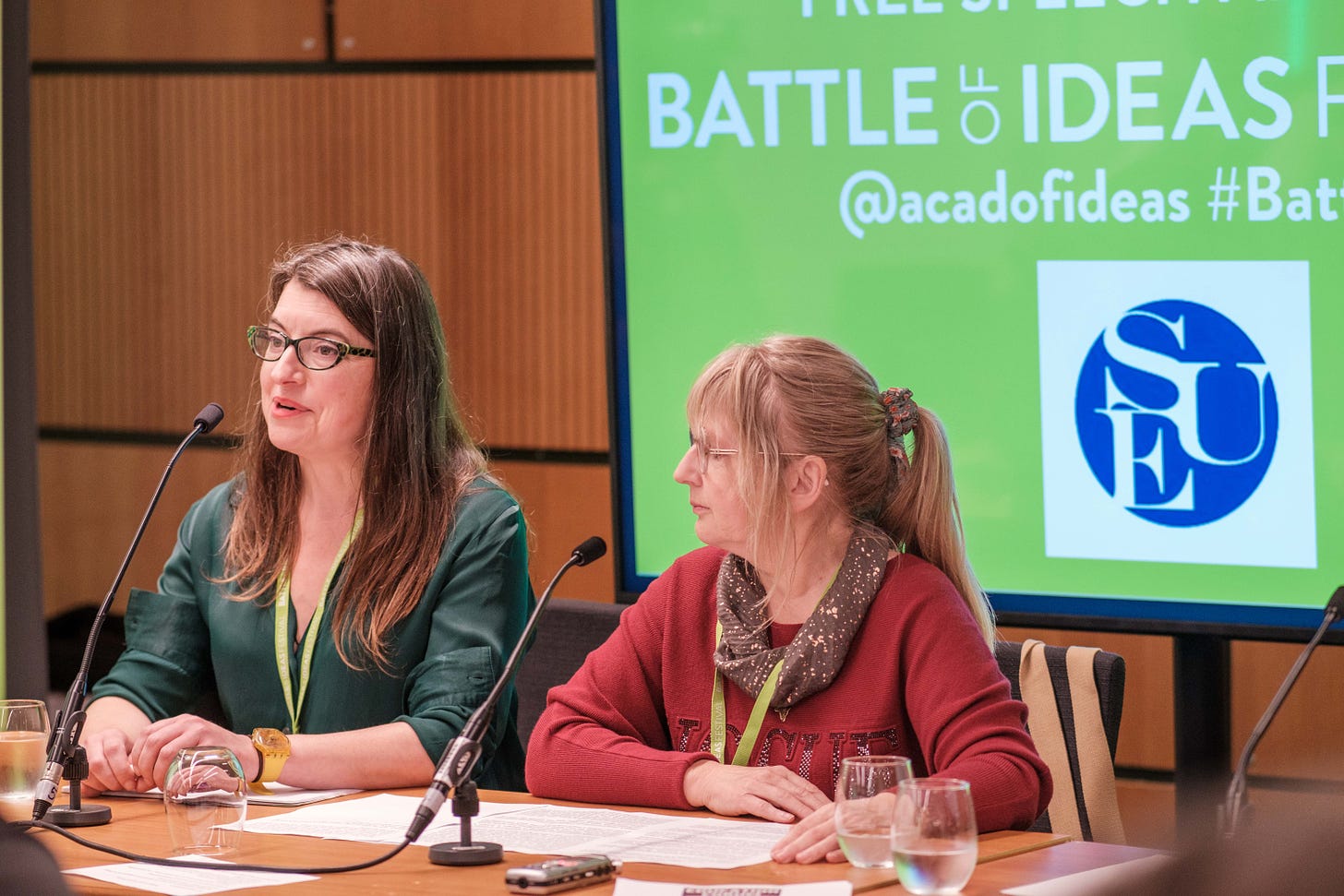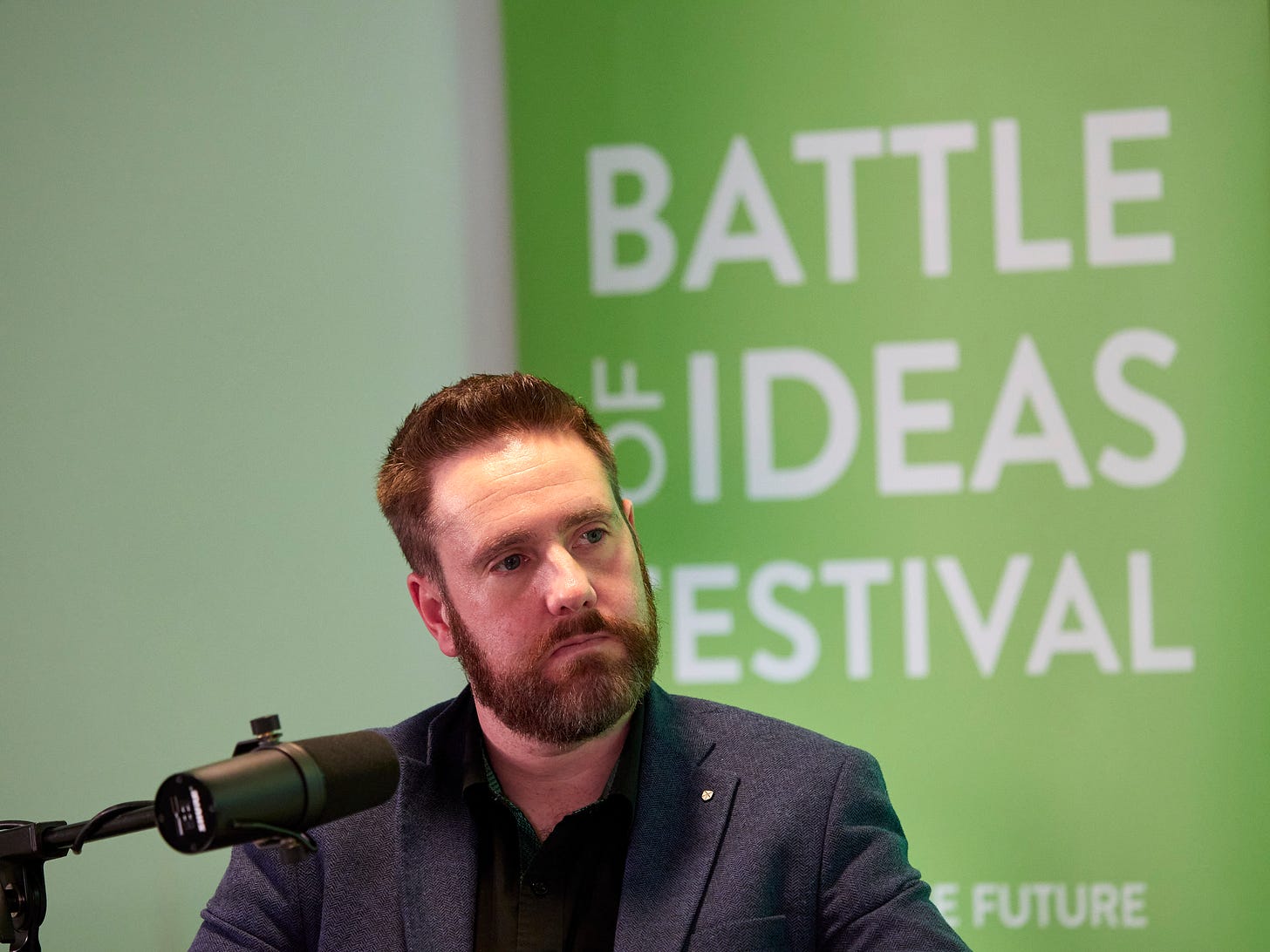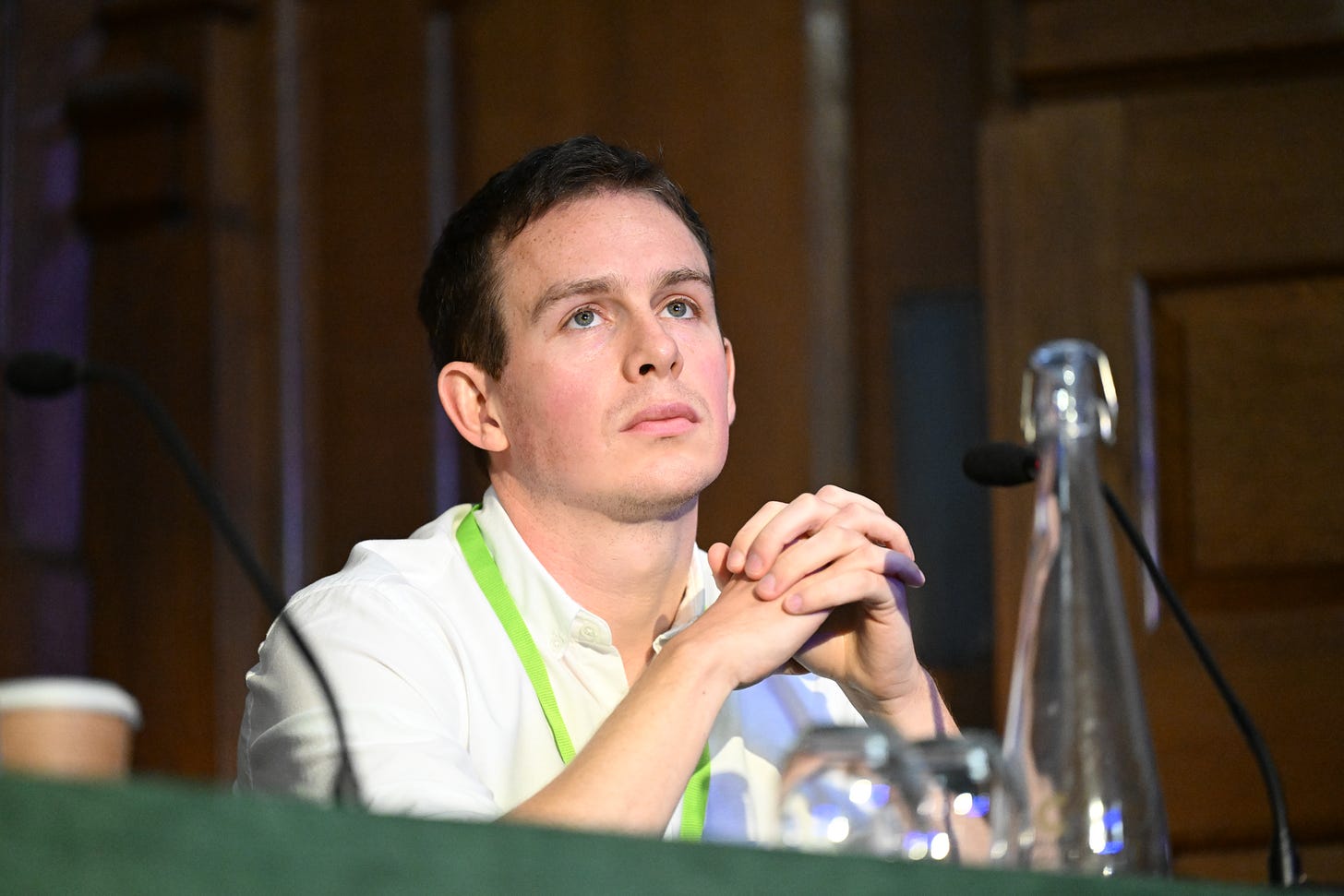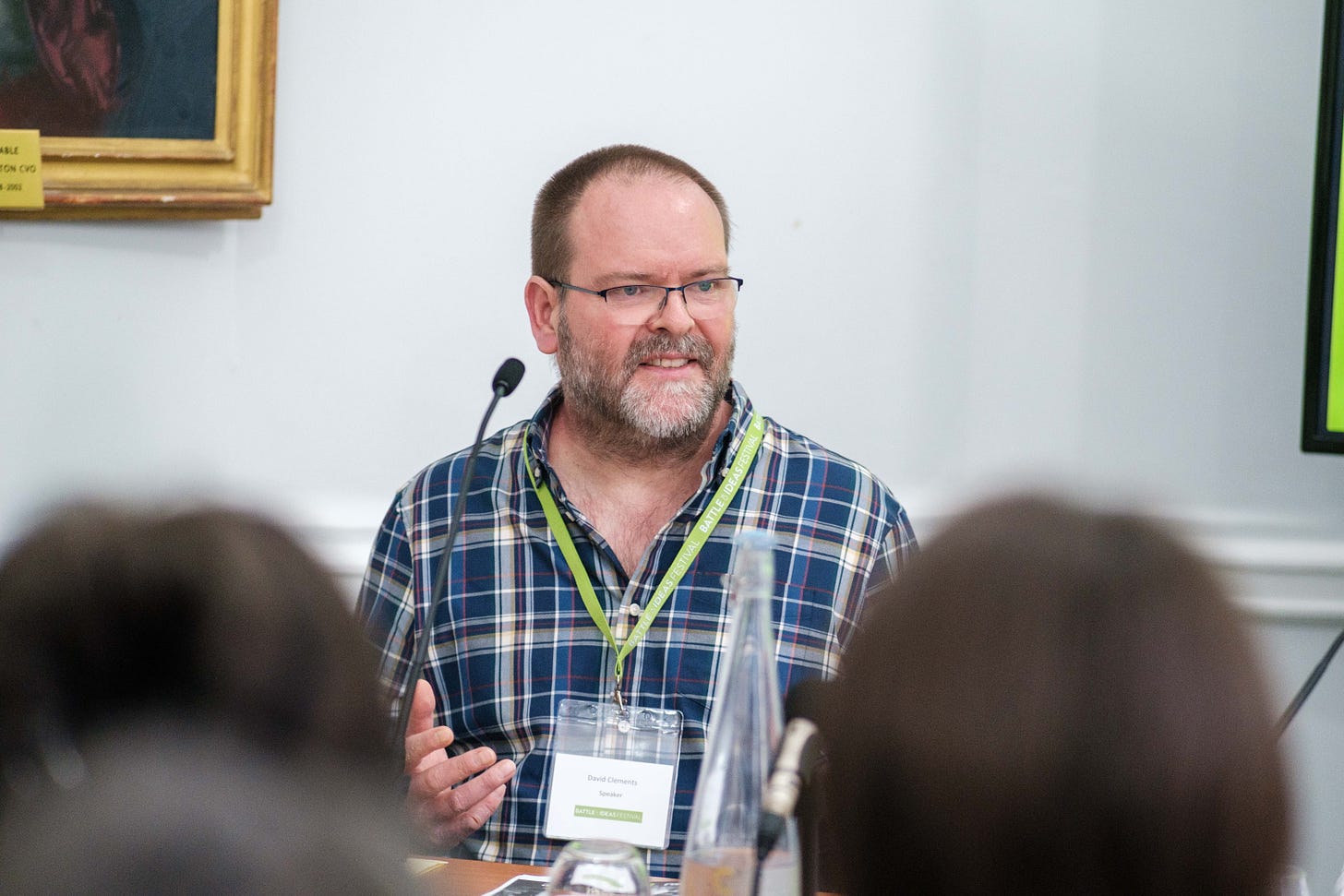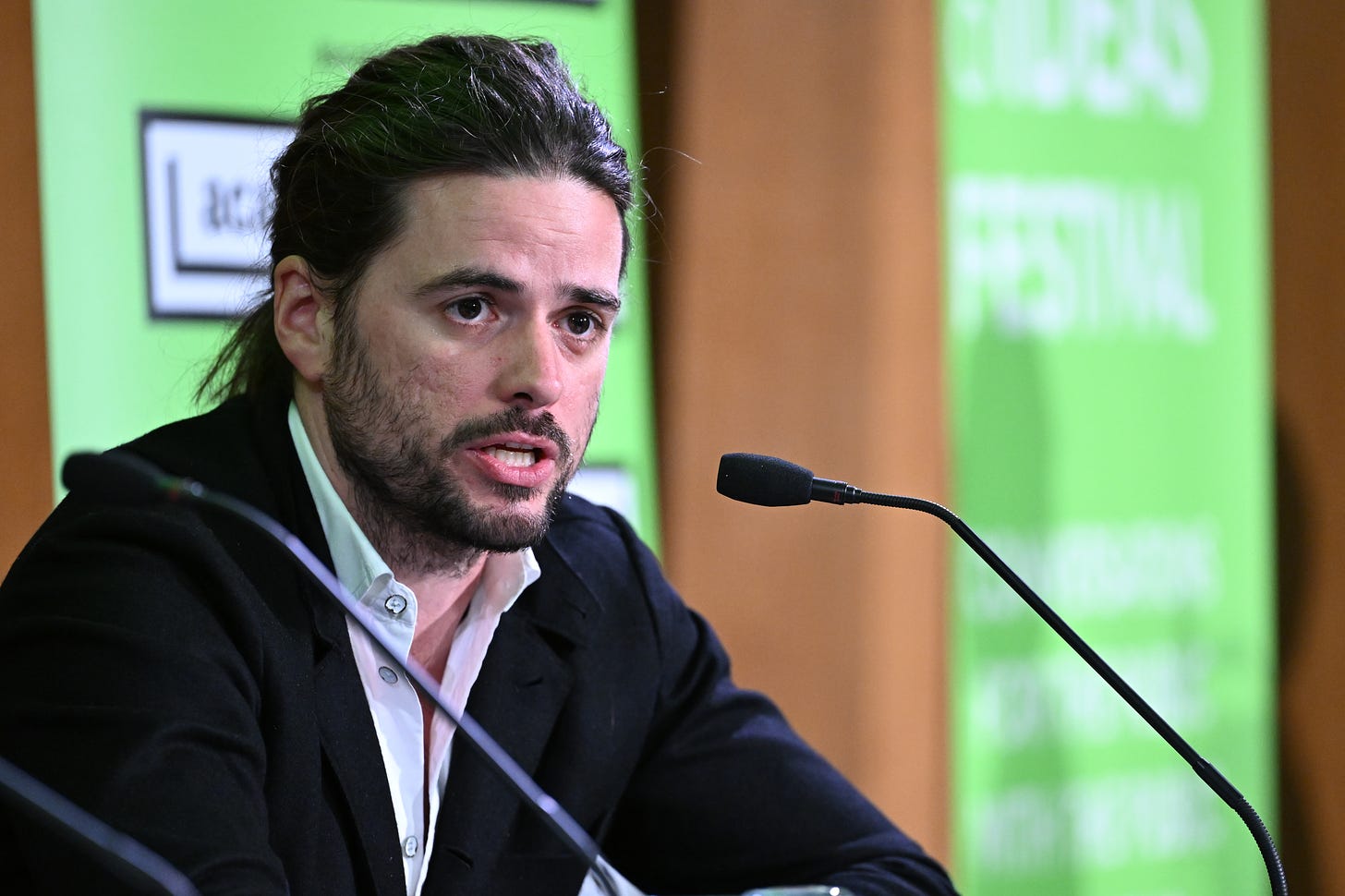Immigration, great art, the gender wars and misinformation - explore the Battle of Ideas
Some of our speakers from the Battle of Ideas festival have published their opening provocations, and we've collated them for you to read...
The Battle of Ideas festival is all about public debate - conversations for the public, with the public, in public. And we’re forever thankful to our incredible roster of speakers for joining our panels to kickstart those conversations with their thoughts and insights. None of them get paid, and all of them get stuck in to what can often be a tough grilling from audiences with big ideas.
We’ve run the Battle for nearly 20 years, and what is wonderful is that, today, we can use Substack to preserve and share content from the festival throughout the year. With this in mind, our project assistant and journalist Ella Dorn has put together a list of just some of the speeches and thoughts from our speakers published on Substack in the last two weeks. In fact, you can follow Ella on Substack too at Fairyland! where she has written about her panel at this year’s festival: (De)socialised on YouTube. There will be plenty more in the coming months, with podcasts and videos on their way of any sessions you’d like to catch up on.
In the meantime, have you got your tickets for 2025?
There’s no time like the present. And, as always, our paid subscribers get big discounts…
Integration into what? Immigration and multiculturalism
What pulls a nation together? Is it time to consider whether celebrating diversity amounts to embracing the self-separation of communities? And is there a way of discussing the problem of mass migration without scapegoating migrants themselves, or resorting to racist antagonism to migrants per se? These are just some of the questions we asked on our keynote panel Integration into what? Immigration and multiculturalism at the Battle of Ideas festival.
Firefighter, trade unionist, broadcaster and author of Despised: why the modern Left loathes the working class; broadcaster Paul Embery joined our panel and has posted his speech on his Substack below. Have a read…
What is great art?
What are the standards for ‘great’ art? Has the drive to include diverse artists created a new hierarchy, one in which the public is led by identity rather than excellence? Should we scrap the canon altogether, and embrace the notion that art is a subjective experience? And if standards are still useful in art appreciation and the education of a new generation of artists, what should they be, and who should decide them?
In her Substack, curator, writer PhD student and Roger Scruton fellow Ella Nixon shares her opening speech from our panel What is great art? Read more below…
Meet-Up: Young Free Thinkers mixer
Whether it is securing free speech for all in an increasingly censorious society, addressing how we energise and revitalise public and civic life, creating a renaissance in the arts and humanities, or rethinking predicaments from housing to economic productivity and innovation, new initiatives and organisations are springing to life and making their mark. At the Battle this year, we got a bunch of young free thinkers together for a session on how to make change.
Writer, commentator and head of content at The Equiano Project, Ada Akpala, shares her thoughts from our discussion - and the festival as a whole - on their Substack below…
Labour’s curriculum review: what can we learn from Scotland?
The Labour government has launched a new Curriculum and Assessment Review. Some observers are pointing to Scotland as a potential blueprint for the kind of ‘progressive’ curriculum that Labour’s review may want to embrace. But should Scotland be a cautionary tale, rather than a model?
Parent and supporters coordinator at the Scottish Union for Education (SUE) Kate Deeming shares her opening thoughts from our panel Labour’s curriculum review: what can we learn from Scotland? Read it all on her Substack below…
Want to know more? Read SUE’s write-up of the panel below…
Gender wars: no end in sight?
What next for the gender wars? While legal victories are important, will this change a culture of censorship around gender issues in workplaces, schools and public institutions? Has the fight largely been won, or will internal Labour Party tensions and an identitarian base mean even more gender ideology infecting public life, whatever Kier Starmer’s more pragmatic intention?
Reporter and host of the podcast The Knight Tube Stephen Knight joined our panel Gender wars: no end in sight? and shares his insights in his Substack below. Stephen also recorded a live version of The Knight Tube at the Battle of Ideas festival.
(Mis)information: the battle for free speech online
Do the public need protection from untruths and, if so, what legal controls should there be? Is there a problem of political bias when it comes to assessing misinformation, with authorities picking and choosing which untruths they go after? How can we tackle the actual problems of misinformation, while resisting cancellations and bans? Or should we simply tolerate the free dissemination of all ideas, in order to avoid the development of a broader censorious culture?
Lecturer in philosophy at the University of Sussex Dr Daniel Williams joined our panel titled (Mis)information: the battle for free speech online. Here in his Substack, he shares his opening speech from the discussion…
Neurodiversity to gender dysphoria: a problem of over-diagnosis?
Are we all neurodiverse now? Is the rise in diagnoses due to an actual rise in numbers, expanding definitions, or clinicians and therapists getting better at identifying symptoms? Or are we over-diagnosing the likes of neurodiversity and gender-dysphoria, even pathologising behaviour which in the past may have been described as shy, socially awkward or perhaps a bit quirky? Do medical diagnoses help people understand their difficulties in interacting with the world by giving them a vocabulary and practical accommodations that help manage and alleviate debilitating discomforts? And what are the implications for medical ethics and health policy, when diagnoses have become so closely linked to understanding our identities?
These are some of the questions we asked in our panel Neurodiversity to gender dysphoria: a problem of over-diagnosis? Joining that discussion was writer, policy advisor and contributing co-editor of The Future of Community Dave Clements. Read his opening speech on his Substack below…
Populism: a response to two-tier rule?
Despite constant reassurances from international commentators that the ‘grown ups are now back in charge’, populist sentiment continues to assert itself throughout Europe. But will fear of being socially isolated deflate the present populist dynamism? How will new political ideas – so crucial for any political project of transformative change – emerge, if the establishment remains so rigid, tone-deaf and hostile in the face of bottom-up dissatisfaction with the status quo?
These are some of the issues raised during our keynote debate Populism: a response to two-tier rule?. Joining the panel was political commentator, musician and host of The Winston Marshall Show, Winston Marshall. Winston shares his opening speech and thoughts on his Substack below…







